AWS Certified SysOps Administrator - Associate
Introduction Prerequisites
Why AWS SysOps Administrator Associate Certification
Welcome to our comprehensive guide on the AWS SysOps Administrator Associate Certification. This article introduces the certification course, outlining its objectives, structure, and study recommendations, so you know exactly what to expect and how to prepare for success.
Course Objectives
This course is designed to equip you with the necessary skills to monitor and manage AWS environments. You will learn to:
- Monitor AWS environments and ensure optimal system performance.
- Implement scalable AWS infrastructure solutions.
- Automate operations using programming, scripting, and managed services.
- Understand and apply key elements of the AWS Well-Architected Framework—focusing on security, reliability, and cost management.
Ultimately, this training prepares you for the AWS SysOps Administrator Associate exam by combining theoretical knowledge with hands-on practical skills.
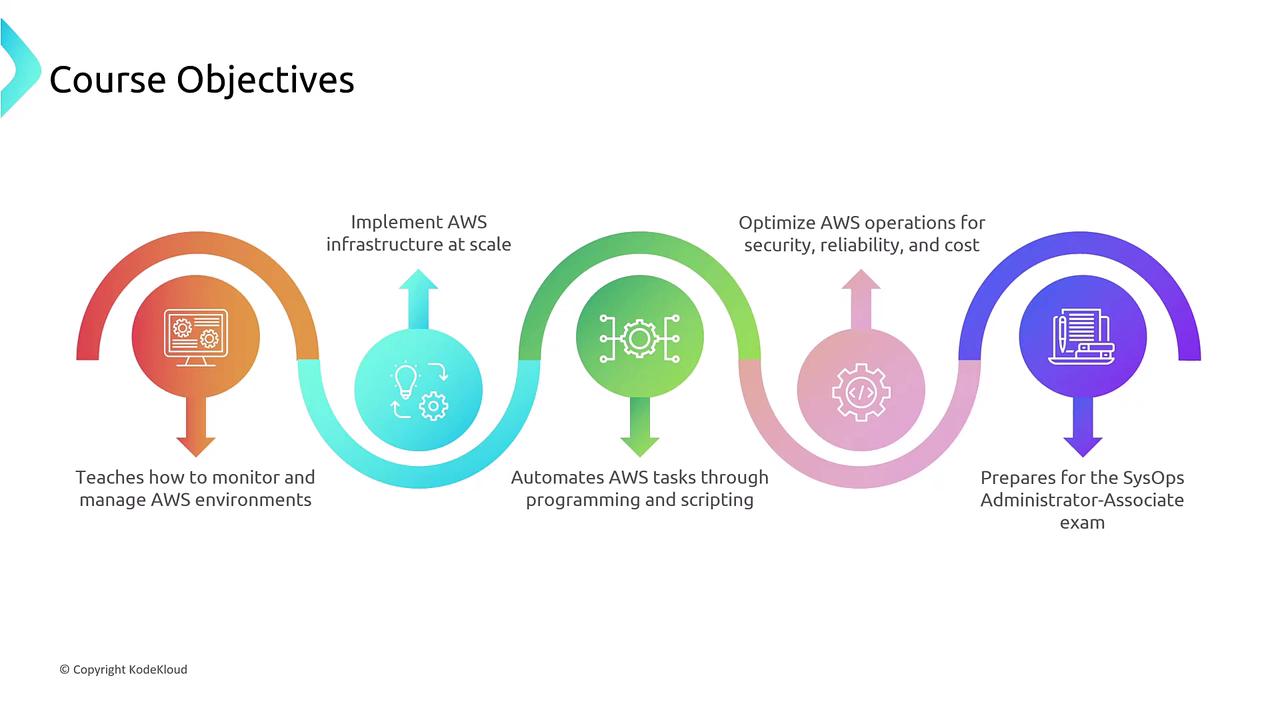
Target Audience
This course is tailored for professionals who have a foundational understanding of AWS (comparable to the Cloud Practitioner level) and are involved in operations within AWS cloud environments. It is especially beneficial for:
- DevOps Engineers
- Cloud Engineers
- Systems Administrators
- Operations Managers
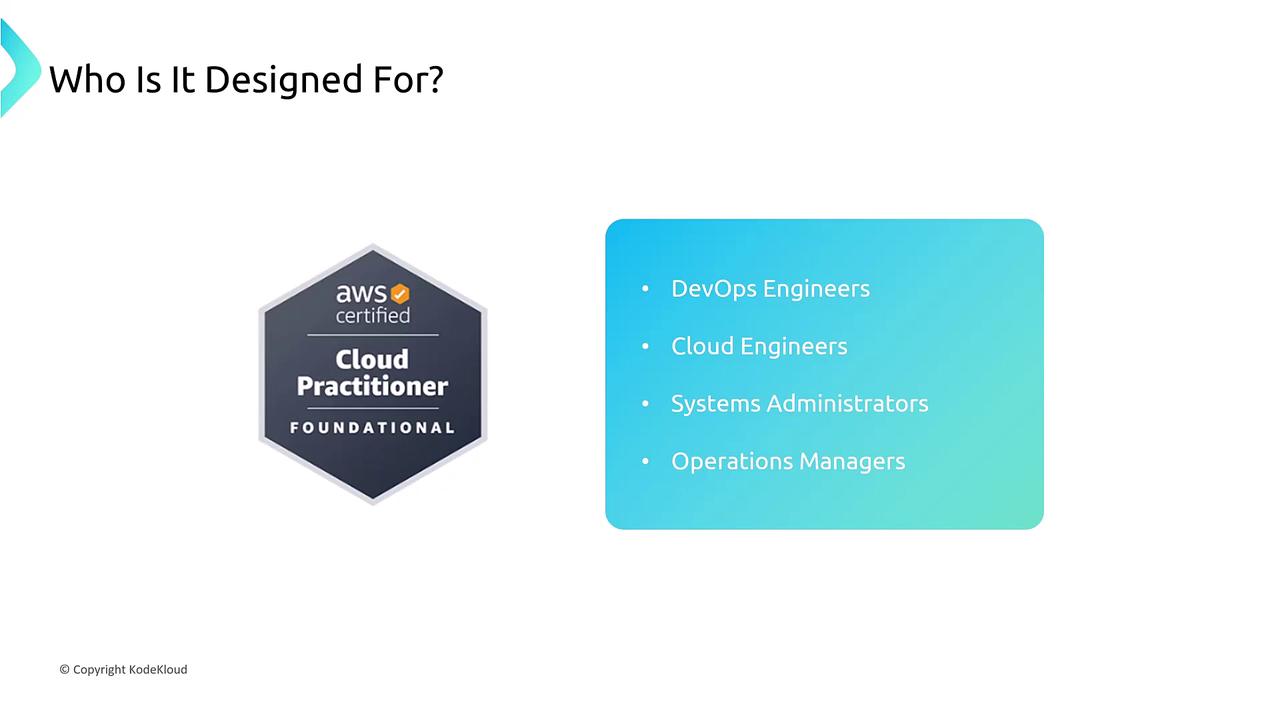
If you have already completed the AWS Cloud Practitioner (CLF-C02) course or assessment, you meet a critical prerequisite for this training. For beginners, a detailed AWS Cloud Practitioner (CLF-C02) training (approximately 15 hours) is available and highly recommended to build foundational service familiarity.
Course Outline
The course is organized into eight sections, built around six essential content domains that mirror the exam blueprint. The curriculum includes:
- Hands-On Labs: Practical exercises to solidify complex concepts.
- Practice Exams: Pre- and post-assessments with 65 questions, simulating an actual exam environment.
- Demos and Interactive Quizzes: Engaging activities to reinforce your learning.
- Drag-and-Drop Games: Interactive tools that make learning fun and effective.
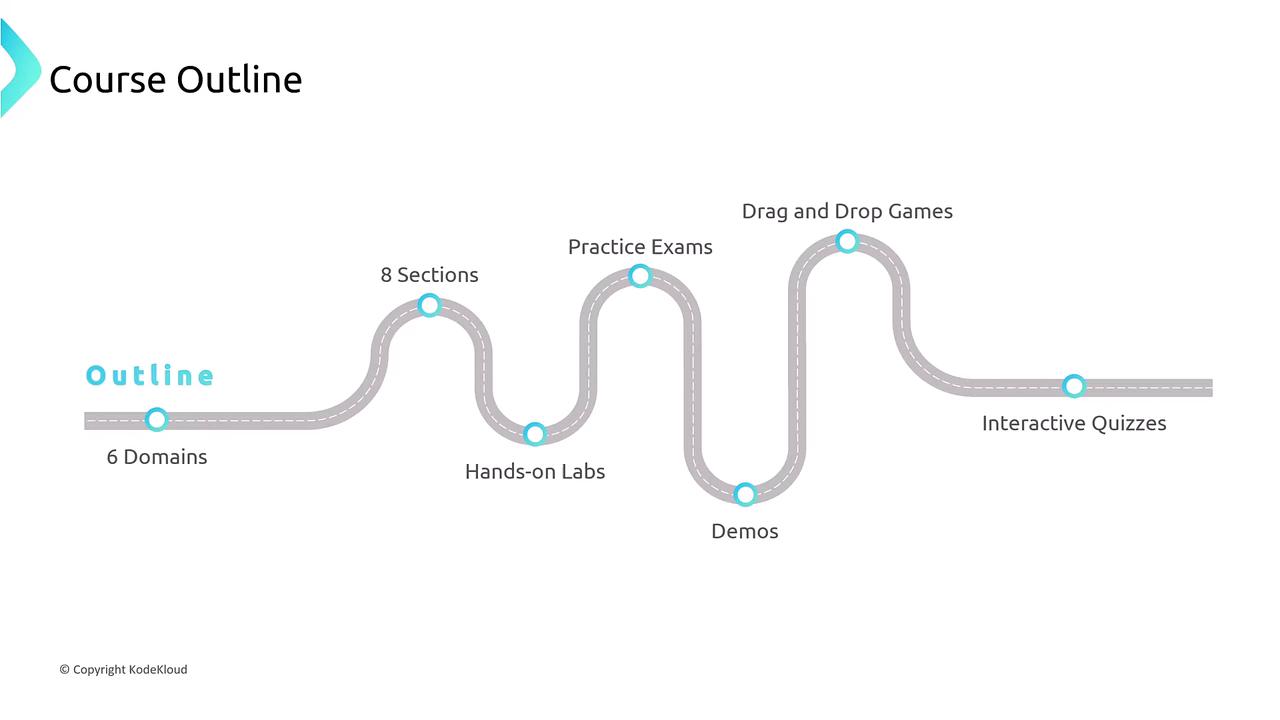
The introduction and closing sections offer an overview of the course objectives, target audience, and study preparation tips. A pre-assessment helps you determine your readiness, so if you already score between 90–95%, you may focus more on key sections and mock exams.
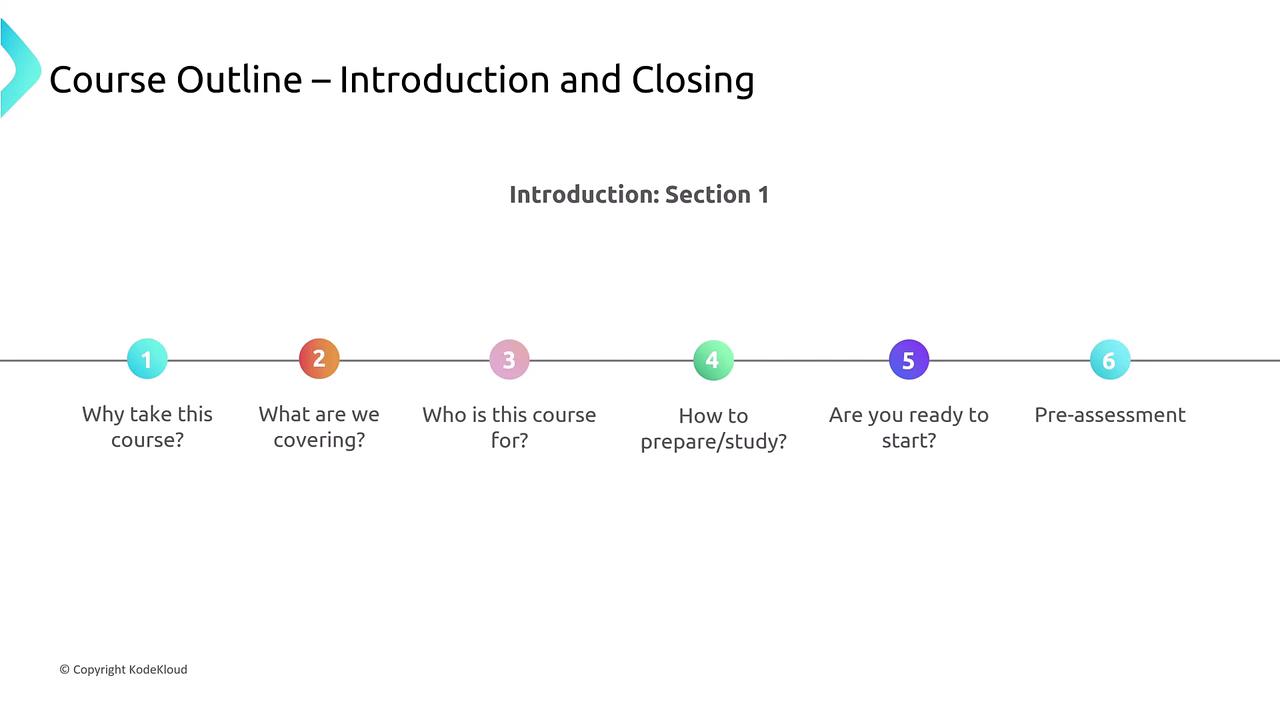
The mock exams simulate the actual exam conditions: 65 questions to be completed within a maximum of 130 minutes (typically 90 to 130 minutes for most learners).
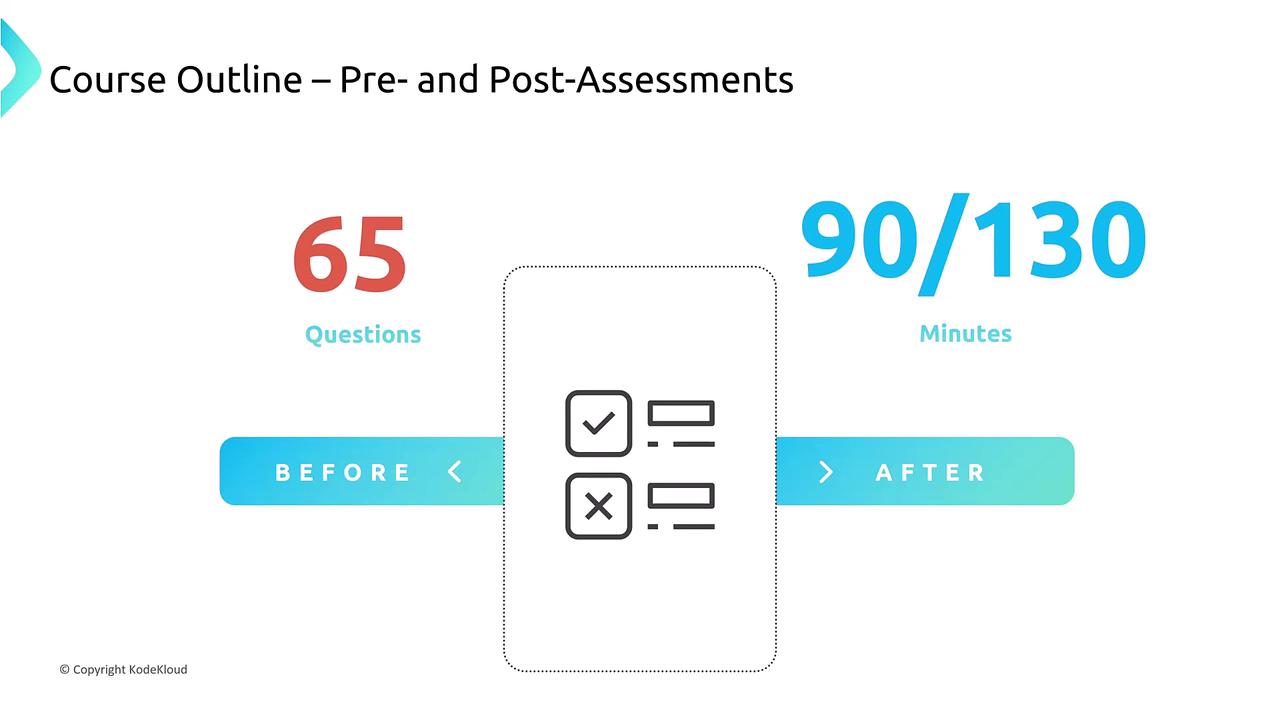
Detailed Course Content
The training covers six major content domains:
- Monitoring, Logging, and Remediation: Learn techniques and tools for tracking system performance and implementing corrective measures.
- Reliability and Business Continuity: Discover strategies for robust disaster recovery (DR) and maintaining continuous business operations.
- Deployment, Provisioning, and Automation: Master best practices for automating infrastructure deployment and configuration.
- Security and Compliance: Understand critical security measures to safeguard AWS environments and ensure regulatory compliance.
- Networking and Content Delivery: Get acquainted with networking fundamentals, including caching strategies and content delivery.
- Cost and Performance Optimization: Learn how to achieve a balance between performance improvements and cost efficiency.
This course combines quizzes, labs, demos, and domain-specific exams to help you effectively grasp and retain the concepts.
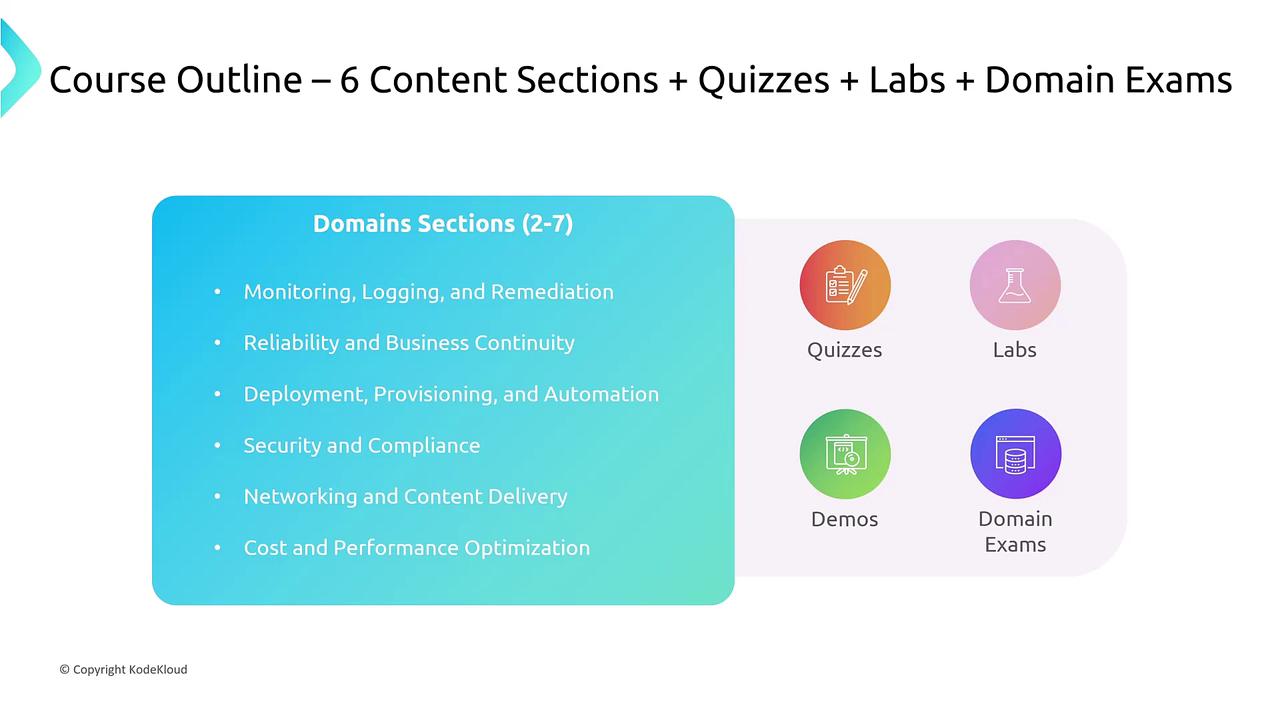
Study Recommendations
Consistency and practice are crucial for mastering AWS operations. Here are some key study recommendations:
Note
Patience and consistent study are the keys to success. Think of your learning journey as a marathon, not a sprint.
- Schedule regular study sessions—15 minutes daily can be more effective than sporadic long sessions.
- Engage actively with the course material by utilizing AWS playgrounds, free labs, and hands-on activities.
- Protect your study time by adding sessions to your calendar and sharing your schedule with friends or family who can support your study routine.
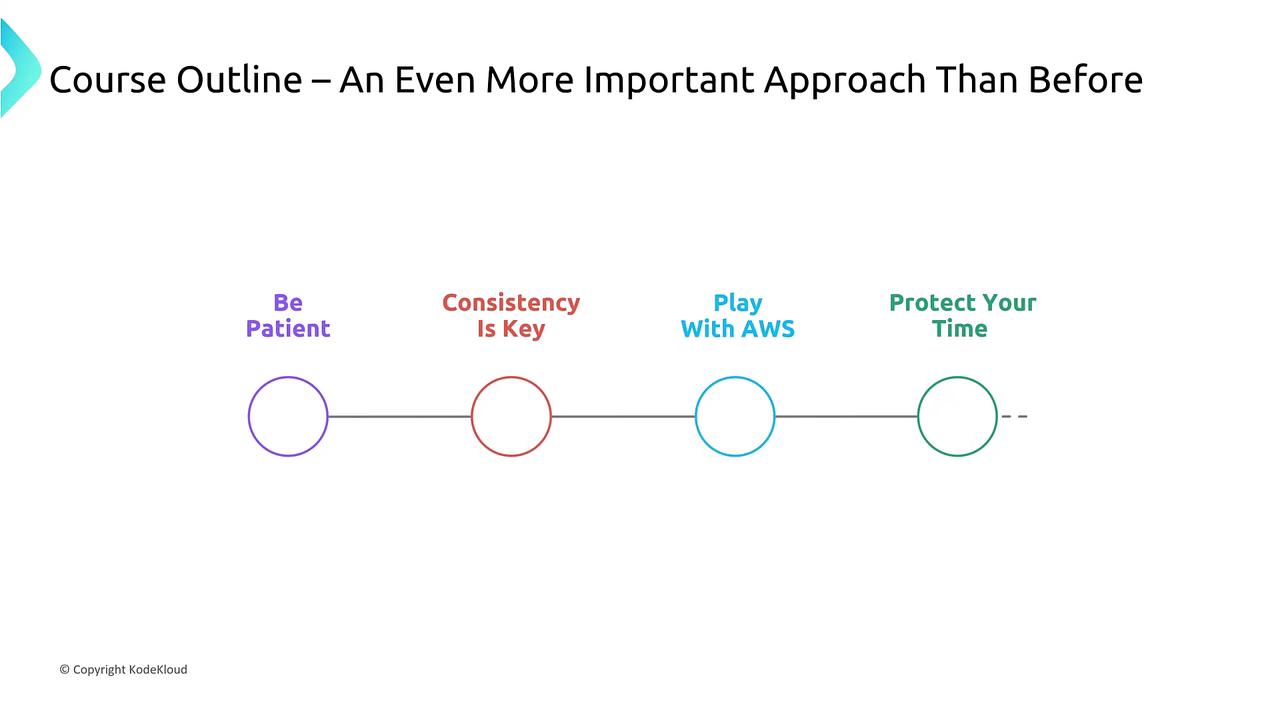
By dedicating eight to twelve weeks to this course—depending on your background and commitment—you will be well-prepared for the AWS SysOps Administrator Associate exam.
Course Summary
In summary, this AWS SysOps Administrator Associate certification course is perfect for individuals seeking to transition into an operations-focused role with foundational AWS knowledge. Key highlights include:
- Coverage of six core content domains directly aligned with the AWS exam guide.
- Comprehensive pre- and post-assessments, quizzes, demos, labs, and interactive exercises.
- Guidance on creating an effective, consistent study routine.
- Access to a supportive community via Discord and the KodeKloud forums for additional technical help.
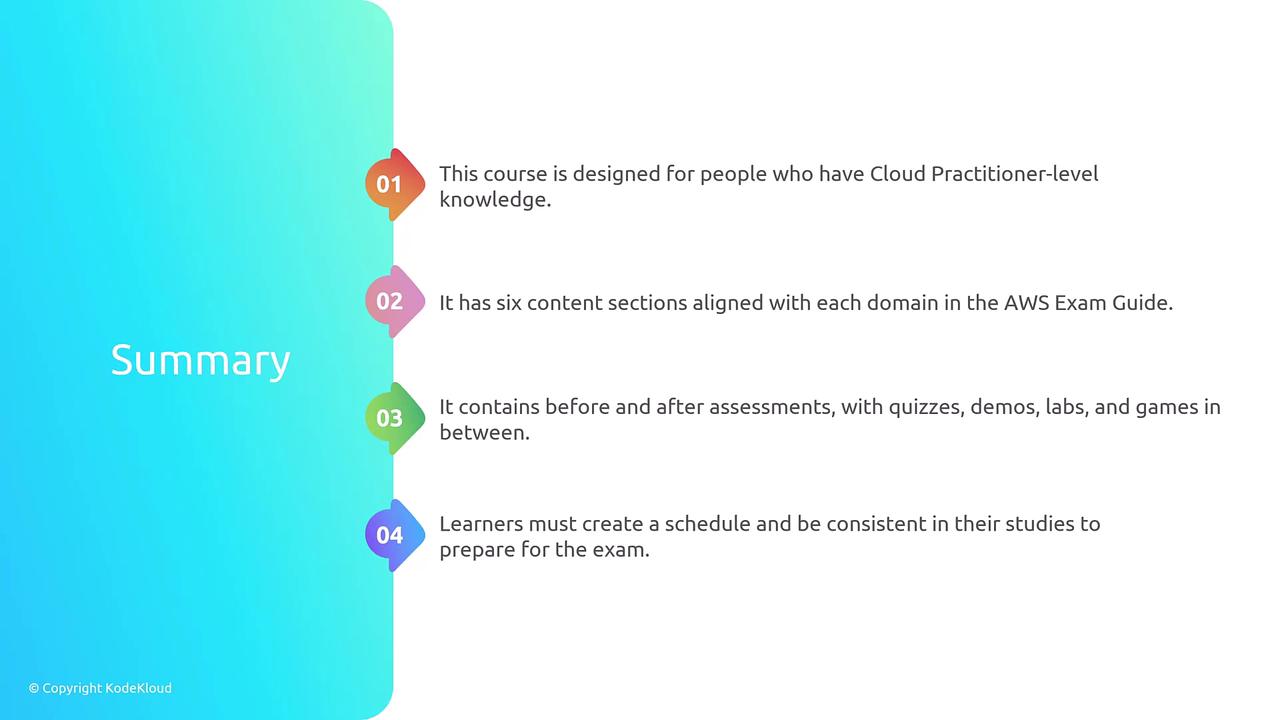
Need Help?
If you have any questions or need further assistance, feel free to reach out. Our expert team—including Sanjeev, Jeremy, Alan, and others—is available on Discord and the KodeKloud forums to support you every step of the way.
We look forward to helping you achieve success on your journey toward AWS SysOps Administrator Associate certification. Happy studying!
Watch Video
Watch video content